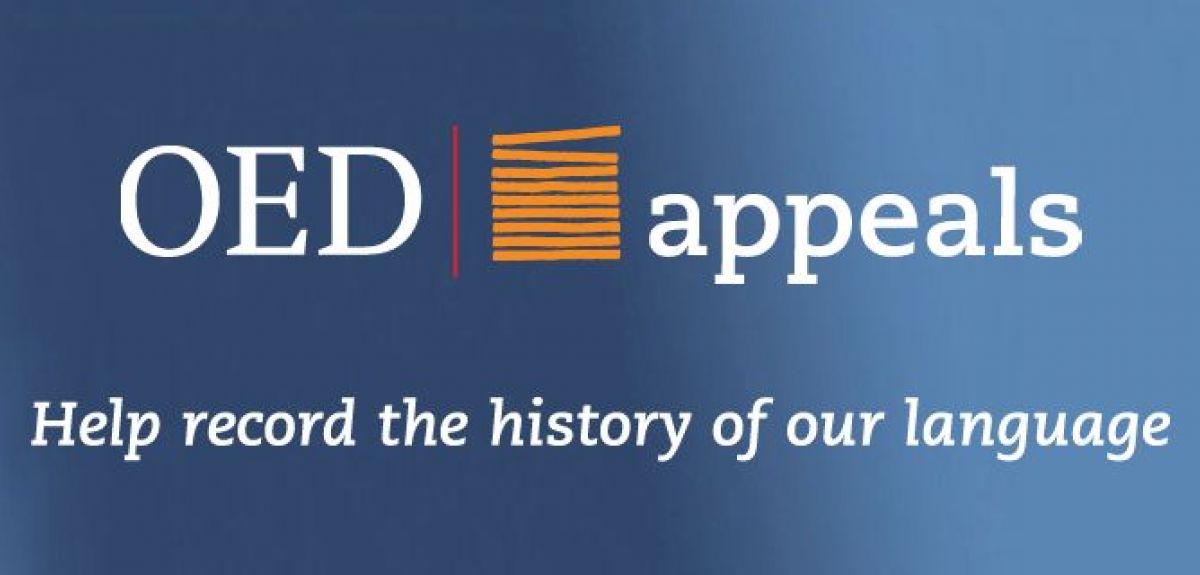
The Oxford English Dictionary needs you!
To commemorate the centenary of the First World War, the Oxford English Dictionary is seeking earlier or additional evidence for a host of WWI-related vocabulary, including 'shell shock', 'demob', 'skive' and 'Sam Browne'. In a guest blog post, Kate Wild, senior assistant editor of the OED, explains further...
The Oxford English Dictionary needs you!
Can you help find earlier evidence for the use of some wartime words?
To commemorate the centenary of the start of the First World War, the OED is updating its coverage of terms relating to or coined during the war.
The First World War had a significant impact on English vocabulary: new words were needed to refer to, for example, new vehicles, weapons, military strategies and trench-related illnesses; words were borrowed or adapted from other languages, especially French and German; and many soldiers’ slang terms were either coined or widely popularized.
For many of these terms, our first quotations are from newspapers and magazines, and we know that there may well be earlier evidence – especially for slang and colloquial terms – in less easily accessible sources such as private letters and diaries.
And just last month, the National Archives released a set of digitized war diaries which might contain valuable evidence of WWI-related vocabulary.
The OED has a long tradition of asking the public to help find evidence of word usage.
Back in the 19th century, the first editor of the OED, James Murray, published lists of words for which he wanted to find earlier or additional evidence, and this type of appeal has continued in recent years, first with the television programme Balderdash & Piffle, and more recently with the OED Appeals website, oed.com/appeals.
Although OED readers and researchers consult a large number of books, newspapers, and online databases, it would be impossible to read or search everything that has ever been written in English.
And given that the purpose of the OED is to show the history of each word in English, the earliest written evidence of a word is very important.
As an example, one of our appeals is for earlier evidence of the term shell shock, for which our earliest quotation is currently the title of a 1915 medical article, ‘A contribution to the study of shell shock.’
This article was written by Charles Samuel Myers, a psychologist who was commissioned in the Royal Army Medical Corps during the First World War.
Some accounts, though, suggest that Myers did not invent the term, but merely popularized it.
Certainly, shell shock sounds like a term that might have been devised by laymen rather than by a medical practitioner, and it is possible that Myers heard it being used by soldiers at the front.
Any earlier evidence of such usage – perhaps from a soldier’s letter or diary – would contribute to our understanding of the term.
A more light-hearted example is the colourful phrase Zeppelins in a cloud or Zepps in a cloud (sometimes also Zeppelins/Zepps in a fog/smokescreen and other variants), meaning ‘sausage and mash’.
Our first example at present is from a 1925 dictionary, Soldier & Sailor Words.
Given that this is a dictionary of slang terms used in the First World War, it seems highly likely that earlier evidence can be found.
This appeal has elicited a number of responses, with suggested quotations from as early as 1915 – though it is possible that there might be something even earlier out there.
For all our appeals, we check the suggested quotations to make sure they are accurate and correctly dated.
The earliest valid quotation is then added to the dictionary entry when it is published in its revised form.
The OED Appeals website always acknowledges those who have submitted usable and verifiable evidence.
The full list of WWI-related appeals can be found at oed.com/appeals.
If you think you might be able to help, please have a look and send in your evidence!
The revised WWI-related vocabulary will be published on OED online during the centenary period.